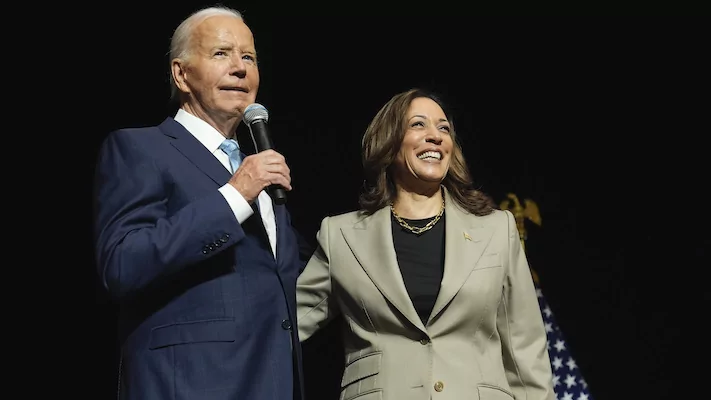

Vice President Kamala Harris is facing a conundrum over her criticism of former President Donald Trump’s tax plan.
Harris has been torching Trump’s proposal to extend his signature tax cut legislation as a giveaway to the wealthy that would add to the deficit, but she supports extending the biggest part of it.
“My opponent … his plan is to do what he has done before, which is to provide a tax cut for billionaires and big corporations, which will result in $5 trillion to America’s deficit,” Harris said during her debate with Trump on Tuesday.
Harris’s campaign has said she doesn’t want to raise taxes on those earning under $400,000, but if the individual provisions of the 2017 Tax Cuts and Jobs Act, known as the TCJA or Trump tax cuts, expire as scheduled next year, most middle-class workers will see their taxes increase. To prevent that, Harris will have to extend the provisions for those earning under that threshold, adding to the deficit, just as she is hitting Trump for.
Extending the tax cuts for those earning under $400,000 comes with a massive price tag, a price tag that Harris’s campaign hasn’t addressed.
Brian Riedl, a budget expert at the Manhattan Institute, told the Washington Examiner that extending the tax cuts for the bottom 95% would cost in the ballpark of $2 trillion or $3 trillion in tax revenue.
It’s not clear whether or how Harris would offset those lost revenues. She has not presented a full budget plan.
But Harris has endorsed most of former President Joe Biden’s tax proposals. For instance, she has backed increasing the corporate tax rate from 21%, which was set by the 2017 Trump tax overhaul, to 28%.
Another part of the Biden tax agenda that Harris has since endorsed involves taxing the unrealized capital gains of the nation’s wealthiest. That specific proposal in Biden’s budget would tax the unrealized capital gains of those with wealth in excess of $100 million, which is a group that is small in number but significant in terms of overall investment. The plan, first outlined in 2023, would impose a 25% minimum tax on the total income of those with assets greater than $100 million.
But Harris has also proposed more tax cuts. She has backed the idea, first proposed by Trump, of ending taxes for tipped workers. She’s also called for a new $6,000 tax credit for the parents of newborns — all things that would need even more tax revenue to pay for.
CLICK HERE TO READ MORE FROM THE WASHINGTON EXAMINER
“She’s proposed additional tax cuts like an even larger expansion to the child tax credit, for instance, that would use up even more revenue,” Erica York, senior economist at the Tax Foundation, told the Washington Examiner.
All of this will come to a head next year when the House and the Senate negotiate what to extend in the individual Trump tax cuts, which expire at the end of the year.






